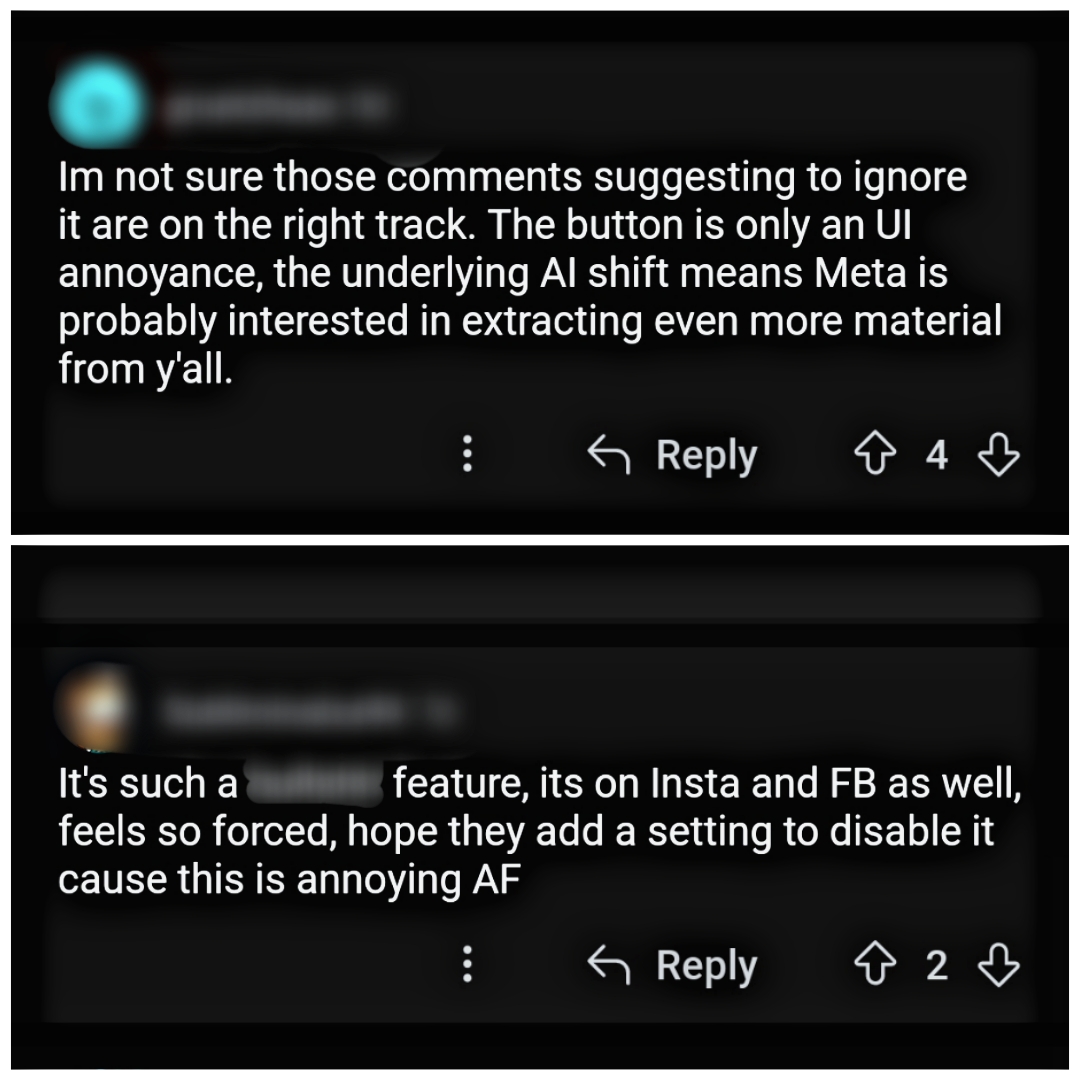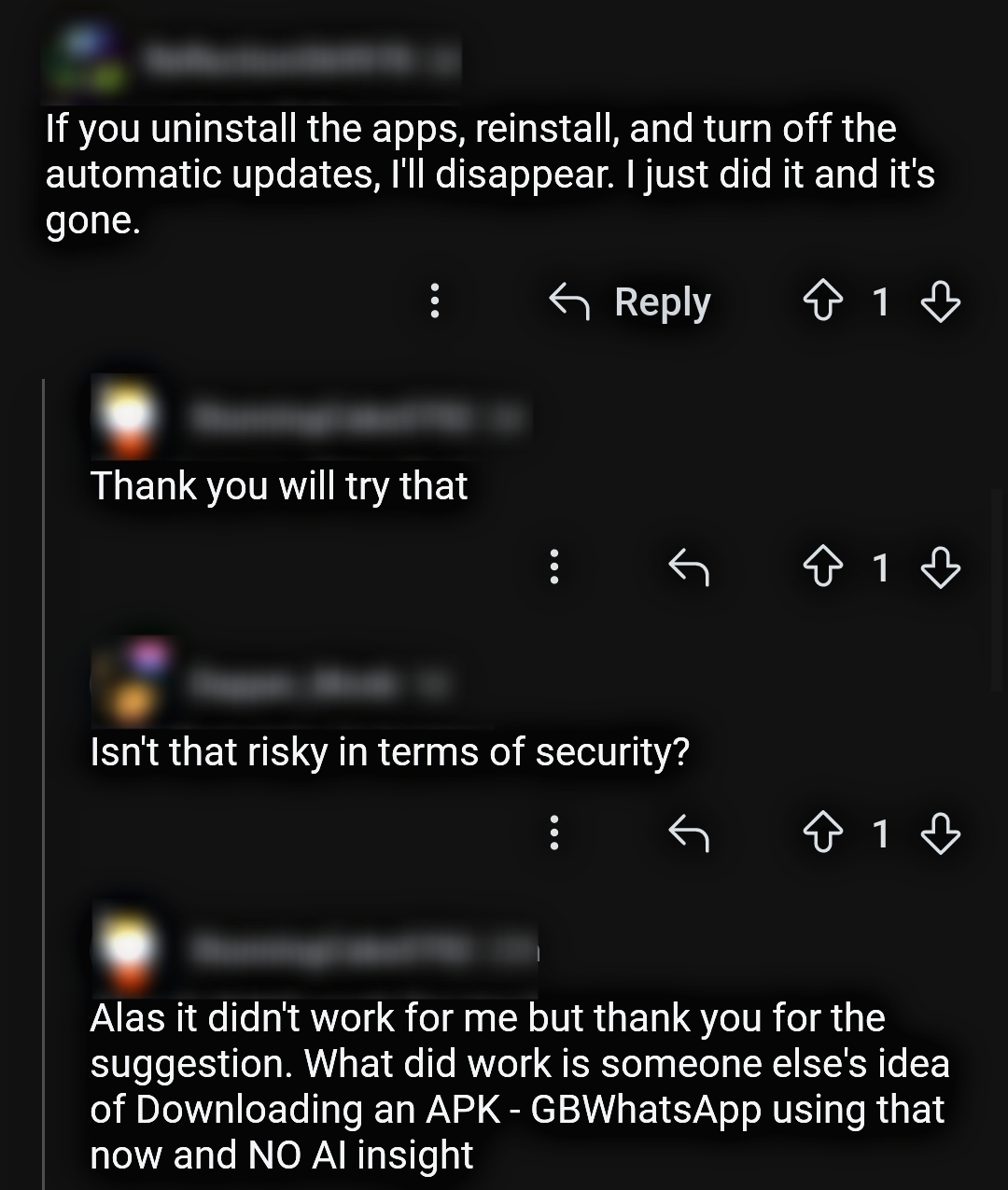WhatsApp, the lifeline of digital communication for millions of Pakistanis, has recently undergone a transformation as discussed in a previous post—one that has left users both intrigued and frustrated. The culprit? Meta AI, an uninvited guest that has made its way into our chats without asking for permission. Let’s have a look at how this feature is becoming a nightmare for the general public.
The Meta AI Invasion
Picture this: you wake up, grab your phone, and open WhatsApp to check your messages. But wait, something’s different. There it is—a little blue circle icon labeled “Meta AI.” Suddenly, your chats have a new companion—an AI chatbot that analyzes your messages, predicts your next move, and maybe even knows what you had for breakfast!
Users across Pakistan raised their eyebrows. Why was Meta AI here? What purpose did it serve? And most importantly, why were they being forced into this digital partnership? The chatrooms buzzed with questions, theories, and a healthy dose of skepticism.
The Unwanted Roommate
This sudden change riled up the netizens, and negative comments regarding the new Meta AI update swarmed the internet. Platforms such as Reddit filled up with frustrated users who could not tolerate this change at all.
Reddit user bles101 became the voice of many. His frustration spilled over as he discovered that Meta AI couldn’t be disabled! It was like having an uninvited guest move into your home and rearrange the furniture without asking. He felt that his privacy was compromised, and he wasn’t alone.
I didnt ask for it, I dont want it and now I can’t disable it. *@#? This is not just a feature. This is AI and now its being forced down my throat without my permission. This is total @$. I will be talking to my local MP to see what can be done from a legal standpoint and I will also be taking it to my local news station and social media.
Users were soon to speculate that Meta had ulterior motives. Was this about extracting more data? Was Meta secretly listening to our conversations, analyzing our messages, and building a digital profile? The paranoia grew, and people demanded answers.

Trying to Escape The Matrix
Desperate for control, users tried to toggle off Meta AI as suggested by some users. But it was like fighting windmills. The plan didn’t work and people were quick to assume Meta had already planted their pawns on social media platforms. Meta had settled in, and there was no eviction notice. Users felt trapped, wondering if their chats were now Meta’s playground.

Some sought refuge in third-party apps like GBWhatsApp. These apps promised customization and the ability to disable Meta AI. But was it a real solution or just a temporary escape? And what about those who weren’t tech-savvy enough to explore alternatives?
WhatsApp wasn’t the only victim. Meta AI had infiltrated Instagram and Facebook too. It was like a digital Hydra—cut off one head, and two more appeared. Users wondered if they were pawns in a grand meta-game.
Future Dilemma Of WhatsApp
What does this mean for WhatsApp’s future? Will Meta AI become our digital overlord, dictating our conversations and choices? Or will users rebel, seeking alternatives that respect their autonomy? The battle had just begun.
Meta AI has barged into our chats, but the fight isn’t over. Users will adapt, resist, and find ways to reclaim their digital space. One thing’s for sure, WhatsApp will never be the same, but perhaps that was the point.
Stay tuned for more tech articles like these; this is your soon-to-be favorite friendly neighborhood techie Zayaan, Signing Off!










































